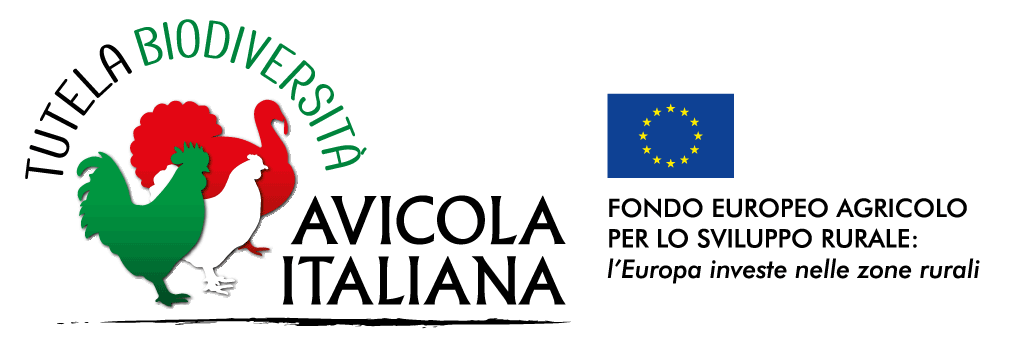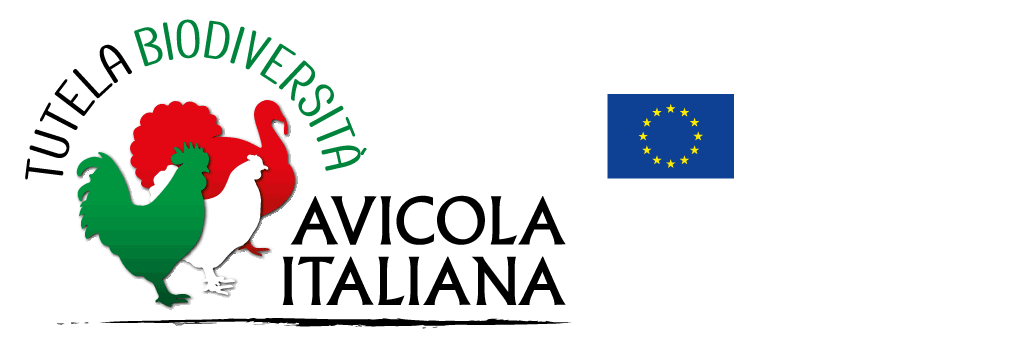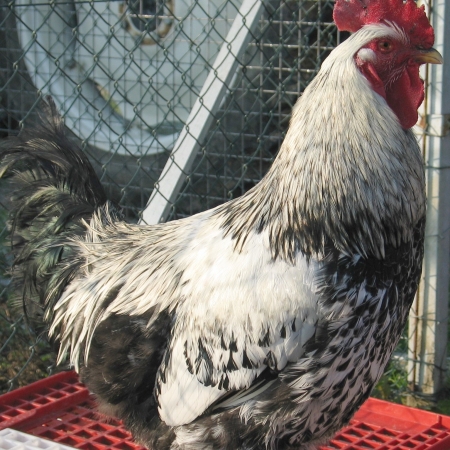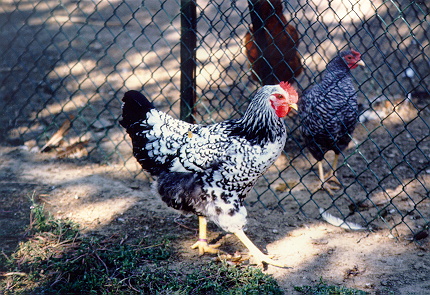Robusta Maculata
Geographic origin: Veneto (Rovigo)
Geographic distribution: Veneto
Estimated total population size: 433 (Castillo et al., 2021)
Extinction risk status (FAO, 1998): Threatened conserved
Historical origin of the breed
Created in 1965 at the Poultry Experimental Station of Rovigo, using the Brown Orpington and White America breeds. It is included in the National Plan on Biodiversity in Agriculture as a local breed, and in the Atlas of Traditional Agri-food Products (Atlante dei Prodotti Agroalimentari Tradizionali) of the Veneto region.
Qualitative morphological traits
Feather morphology: Normal
Feather distribution: Normal
Plumage structure: Soft, abundant
Plumage colours: White plumage with black spots
Colour features: Bi-colour, with sexual dimorphism
Colour pattern: In the male, neck hackle white/silver with black feathers with black striping; rest of plumage silver with irregular black spots; primaries, main tail feathers and sickle feathers black with beetle-green sheen. In the female, white/silver plumage with large deep grey/black spots, irregularly spread on the body.
Chick plumage colour: Dark down with little light yellow spots, yellow belly down, brown spot on the head
Comb type: Single comb, upright, well developed
Comb spikes: Five to six spikes
Ear-lobe colour: Red
Beak colour: Yellow
Iris colour: Orange to red
Skin colour: Yellow
Shank colour: Yellow
Shank feathering: Free from feathers
Quantitative morphological traits

Genetic traits
Characterisation of the breed with Single Nucleotide Polymorphisms (SNPs)
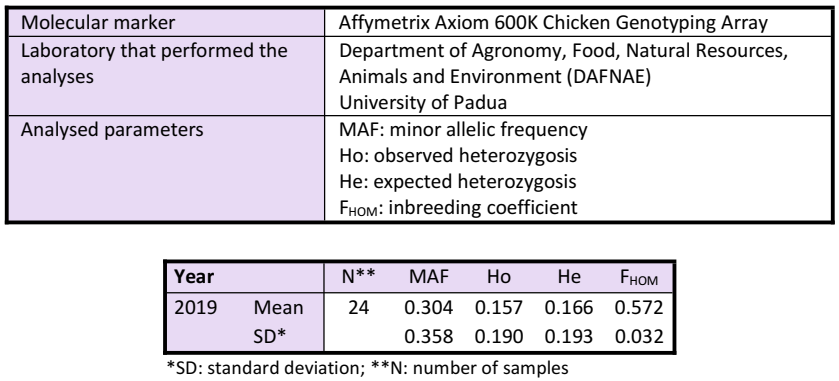
Characterisation of nucleus populations with microsatellites
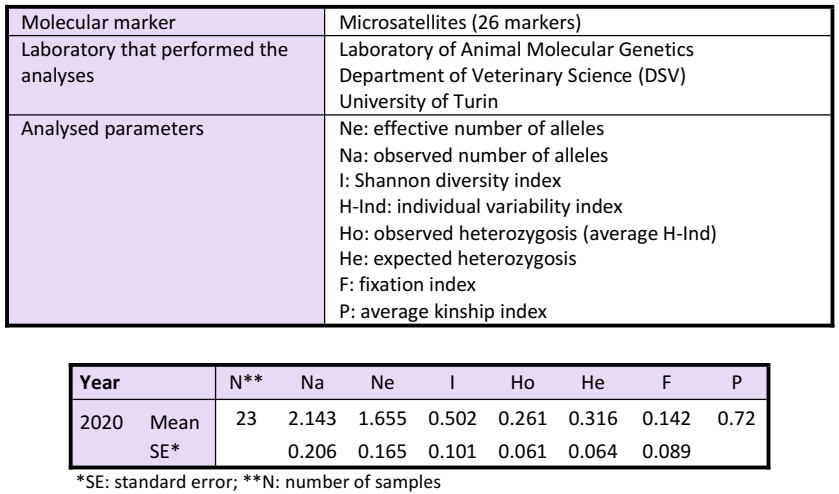
Reproductive and productive quantitative traits
Oviposition, brooding and incubation data
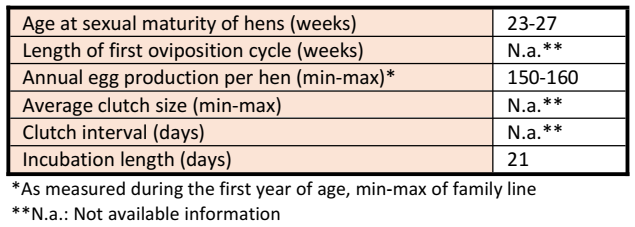
Egg-quality traits

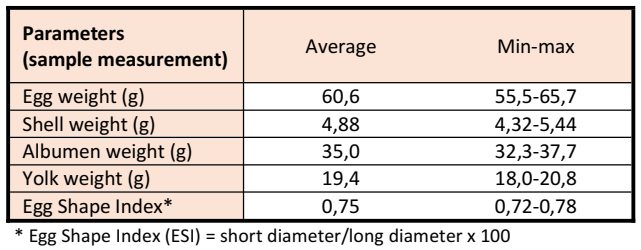
Reproductive traits
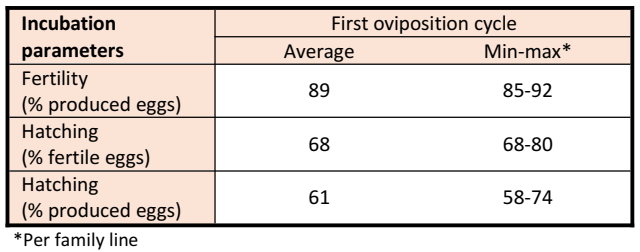
Slaughter data (age: 24 weeks)

Rearing traits
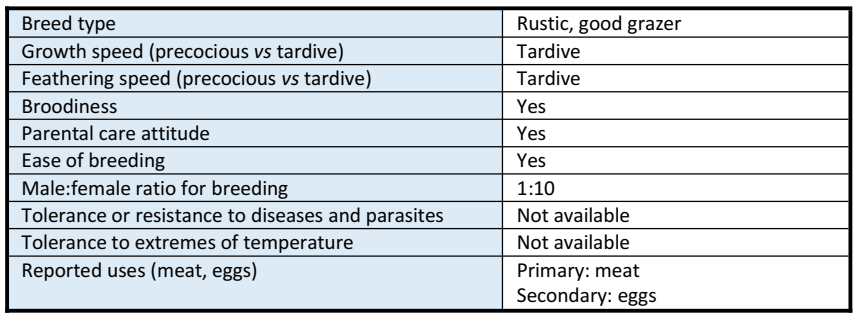
The presented data were registered in the nucleus population conserved at the “Sasse Rami” Experimental Farm, in Ceregnano (Rovigo).
Technical data sheet
(The layout of the data sheet is ready for the booklet format. Print on both sides of paper, selecting “flip on short edge”.)
Germplasm collection
The breed is conserved in our Cryobank with 170 semen doses from 11 donors.
Genetic report
Download the latest genetic report for the Robusta Maculata breed:
Latest update: December 9th, 2024
